Heritage Foundation of Williamson County Announces 2024 Sites to Save
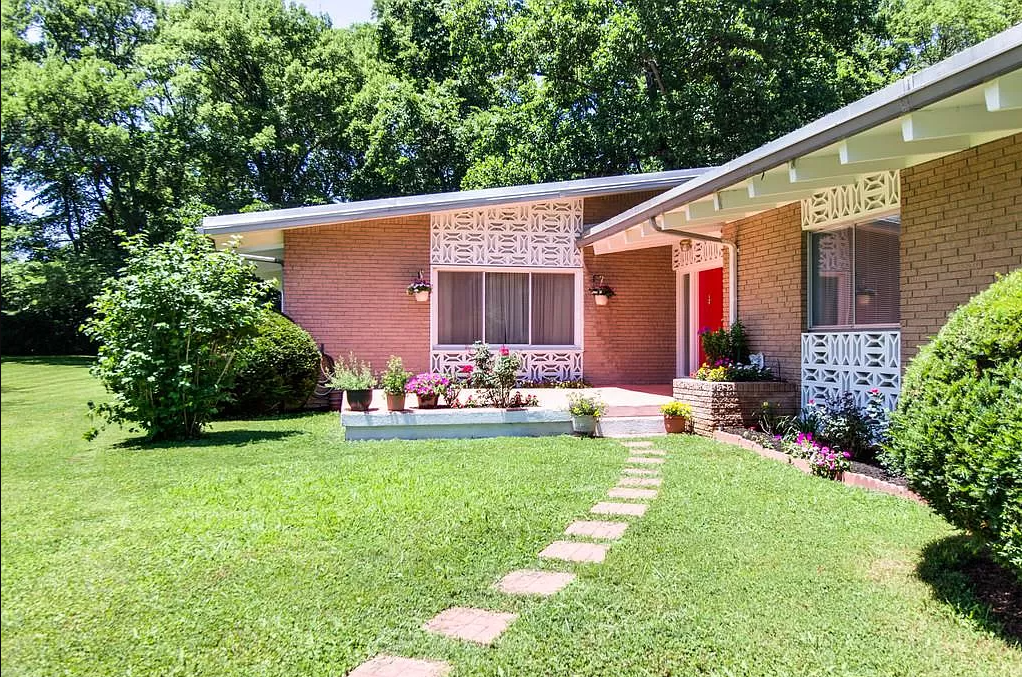
The non-profit organization has selected five vulnerable sites nominated by the community to preserve and raise awareness of during Preservation Awareness Month
FRANKLIN, TENN. – The Heritage Foundation of Williamson County, TN, formally announced its 2024 Sites to Save list, which are now available in detail on its website: https://williamsonheritage.org/historic-preservation/sites-to-save/
The Sites to Save list highlights properties that are historically significant and endangered in the Williamson County area because of age, condition, and/or potential development. The list is designed to help the community join the Heritage Foundation in its efforts to raise awareness of significant historic, cultural, geographical, and archaeological resources, including buildings, structures, cemeteries, historic districts, archaeological sites, and natural and cultural landscapes.
“Franklin is a leader in historic preservation success for communities across the country because we share a common goal of maintaining cultural pillars,” said Bari Beasley, President and CEO of the Heritage Foundation. “We want to build upon our recent successes and continue our Foundation’s mission to steward the best practices to preserve, promote, and advocate for the historic places, stories, and culture of our community.”
“We’re excited and thankful to the community for aiding us in nominating over five sites and guiding our priorities for this important and impactful program,” said Anna Marcum, Senior Director of Preservation. “Our preservation efforts are only effective with the support of the community and our value in the places and stories that make Williamson County special.”
2024 Sites to Save
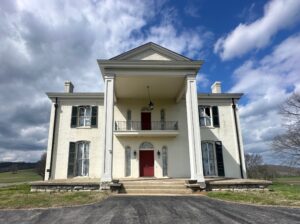
Pryor Lillie Works – Beechwood Hall (1856), Grasslands (1802, 1850), and Old Town (1846)
WHY: Pryor Lillie built three of the most significant antebellum homes in Williamson County. To have an extant portfolio of an antebellum builder’s work in Williamson County is extremely rare and these properties should be preserved as a group.
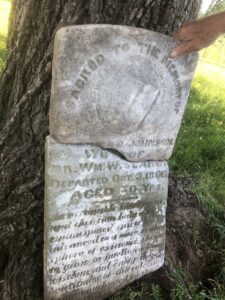
Williamson County Cemeteries
WHY: Intimate family cemeteries are abundant in Tennessee and an important feature of the state’s landscape. As more folks move to Middle Tennessee and development ramps up, it’s crucial that people are on the lookout for these cemeteries and are aware of how to appropriately handle them.
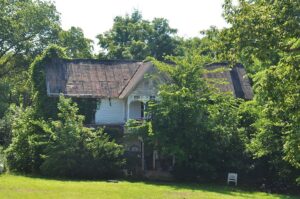
James Scales House (1885)
WHY: The James Scales House is a lovely example of Eastlake Victorian architecture and the I-house form in Williamson County. Despite the land around it being used as construction storage, the home still retains a remarkable amount of its Eastlake decoration on the porch.
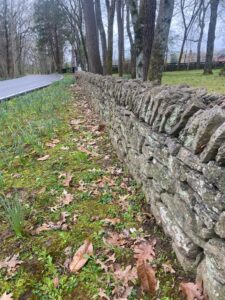
Williamson County Dry Stack Stone Wall
WHY: These walls are a defining feature of the Tennessee landscape that are not protected by any kind of historic preservation ordinance. With rapid development, many are being lost simply because people don’t understand their significance.
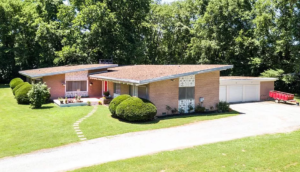
Williamson County Mid-Century Modern Homes – The Tucker Home (1967)
WHY: As the construction of I-65 progressed through Williamson County in the 1950s and 60s, towns along the interstate route exploded in growth and along with that growth came a number of lovely Mid-Century Modern homes. Many don’t see the historic value in modern architecture, but these homes are not only an excellent example of the style but also indicative of an important part of Williamson County’s recent history.
Staff at the Heritage Foundation of Williamson County plan to attend relevant public meetings regarding each of the sites on the list, consult with willing property owners and municipalities about the history of the properties to offer insight on preservation and restoration, and connect willing property owners with construction and preservation experts related to the needs of the sites.
Earlier this year, the Heritage Foundation of Williamson County moved the historic Lee-Buckner Rosenwald School from Spring Hill to the organization’s Franklin Grove & Estate and Gardens in Downtown Franklin, as well as opened The Moore-Morris History and Culture Center of Williamson County, housed within a National Register of Historic Places building dating to 1905. It also launchedPreserve Williamson, a community-centered campaign to safeguard Williamson County’s quality of life by protecting greenspace, the built environment, and championing smart growth.
The Sites to Save announcement comes during Preservation Month. Throughout this month, the Heritage Foundation of Williamson County will be promoting historical and culturally significant sites. More information about the Heritage Foundation and its preservation projects can be found visiting https://williamsonheritage.org/ .
ABOUT THE HERITAGE FOUNDATION OF WILLIAMSON COUNTY
Since 1967, the Heritage Foundation of Williamson County has been dedicated to preserving Williamson County’s architectural, geographic and cultural heritage as well as promoting the ongoing revitalization of downtown Franklin in the context of historic preservation. Notable projects include The Franklin Theatre, Roper’s Knob, parts of the Franklin battlefield and the Old, Old Jail. Events and festivals produced by the Heritage Foundation such as Main Street Festival, the Heritage Ball, PumpkinFest and Dickens of a Christmas bring an estimated 300,000+ locals and visitors to downtown Franklin each year, creating a more than $10 million economic impact annually. The Heritage Foundation owns and operates The Franklin Theatre, Downtown Franklin Association, Franklin Grove Estate & Gardens, and its newest historic adaptive reuse project, The History & Culture Center of Williamson County. For more information about the Heritage Foundation, visit www.williamsonheritage.org.
###



